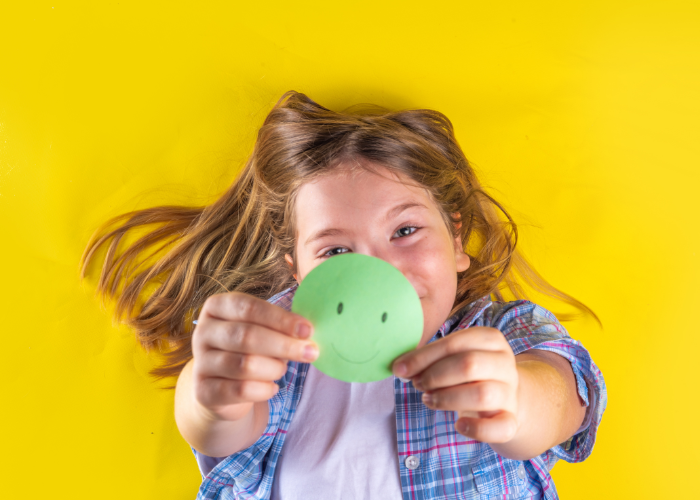IMANA NEWS
A Safe Space for Kids: The Importance of Children’s Mental Health
13 August 2024

Mental health has been a growing advocacy in the healthcare sphere as we become more aware of the mental assaults we face daily as adults: anxiety, depression, or stress manifesting in dysfunction.
However, it is important to realize that mental health care is vital across all age groups, and we cannot undermine its crucial role in the development of children.
Why Is Children’s Mental Health Important?
Mental health sets the direction for how children learn, behave, and handle their emotions today. It also determines how they will deal with life’s realities when they grow up.
Children are more susceptible to mental health issues because of their exposure to social media and digital technologies. According to the US Department of Health and Human Services, children and adolescents who use social media for more than three hours a day have twice the risk of developing mental health problems, including anxiety and depression.
Furthermore, people who suffer from mental health issues as adults are often those who had adverse childhood experiences that were not addressed.
But before we dig deeper into that reality, it’s essential to understand what mental health is.
The World Health Organization defines mental health as a state of mental well-being that enables people to manage life’s stresses, recognize their capabilities, learn, work, and positively contribute to their community.
According to the US Centers for Disease Control (CDC) Children’s Mental Health, mental health is not simply the absence of a mental disorder. Children diagnosed with a condition differ in terms of strengths and weaknesses in their development and coping methods. It is a spectrum, and observing children’s behavior with an understanding of these truths is important.
Children’s Mental Health in the USA: A Cause for Concern
Children need our help in creating a safe space where they can think, feel, or act in healthy ways, whether at home, school, or play.
In the USA, the statistics on children’s mental health are alarming. Based on a 2023 report of Mental Health America, 16.39% of youth (age 12 to 17) reported having at least one major depressive episode (MDE) in the past year.
What the Last 10 Years Have Been Like
From 2014 to 2018, 1 in 6 students were reported by teachers and parents to have shown symptoms of potential childhood mental disorder.
Pediatric mental health data from 2016 to 2019 showed that the most common mental health conditions among emergency cases in children’s hospitals were suicide attempts, suicide ideation, and self-injury. These cases have been steadily rising since then.
Statistics also showed that 9.8% of the child population—approximately 6 million children aged 3 to 17—were diagnosed with ADHD (attention deficit hyperactivity disorder), 9.4% or around 5.8 million had anxiety, 8.9% or around 5.5 million had behavioral problems, and 4.4% or around 2.7 million had depression.
Among Americans below 18, depressive disorders are the most common cause of hospitalization (excluding pregnancy and birth).
Mental Health Situations of Children in Refugee Camps
Children displaced due to war, disasters, or famine are highly vulnerable and experience a great deal of trauma and stress. Being exposed to or experiencing violence and instability at a tender age can have a lasting psychological impact on them.
Losing one’s home and community negatively impacts a child’s mental health, causing them to have more mental health problems compared to the general population. The most commonly diagnosed mental health disorders are depression, anxiety, and post-traumatic stress disorder (PTSD).
Studies regarding the mental health of refugee youth living in areas with high-intensity conflict showed the prevalence of PTSD at 36% on average across samples and of depression at 18% on average. A few studies suggest up to 80% of young refugees aged eight and under have mental health problems, mainly depression, anxiety/PTSD, and behavioral challenges.
There is still a lack of data on refugee youth in low to middle-income countries.
The Need for Psychosocial Support
It cannot be emphasized enough how children, especially those in unstable and high-risk environments, need to receive interventions and services like community-based care that can support their psychological and social well-being and support their needs.
Children need to feel safe and cared for to ensure healthy development in the various aspects of their growth. This is a crucial factor in enhancing their resilience and coping mechanisms. They have to be equipped with the proper tools and support to better manage their emotions and deal with their environment with a strong mind.
Individualized Care and Holistic Approach
As children differ in the way they behave, their strengths and weaknesses, and their family background and history, it is vital to provide support and services tailored to their individual case and unique set of circumstances.
Their Mental Health, Their Future
Shaping the course of our children’s future hinges a lot on their mental well-being today. Children depend on us to help them develop in an environment that promotes their mental health.
By providing a safe space to learn healthy social skills and coping mechanisms, they can better face life’s inevitable challenges as they age. We must also take a proactive and holistic approach, knowing that children’s mental health issues have far-reaching effects on their lives.
Our support can improve children’s futures so they can flourish even in the face of adversity. With mentally strong children growing into adults, our world would have a better chance of becoming a safe space where everyone can thrive rather than simply survive.
Many children around the world are at high risk of mental health issues because of their negative experiences and environments. You can help us improve awareness and access to mental health services in the Muslim community by donating or doing volunteer work.